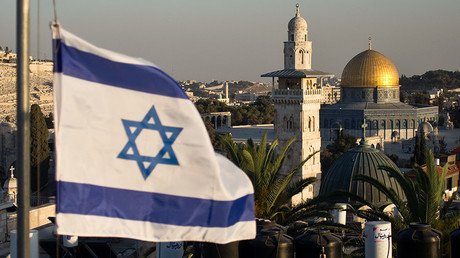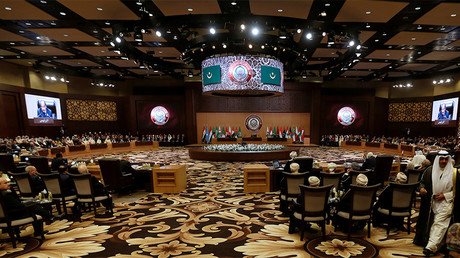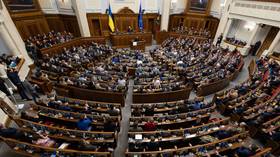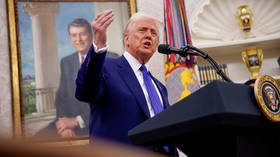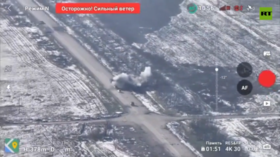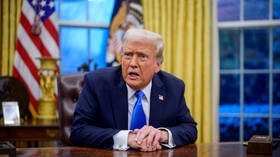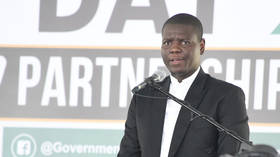Trump informs Abbas of intention to move US Embassy in Israel to Jerusalem
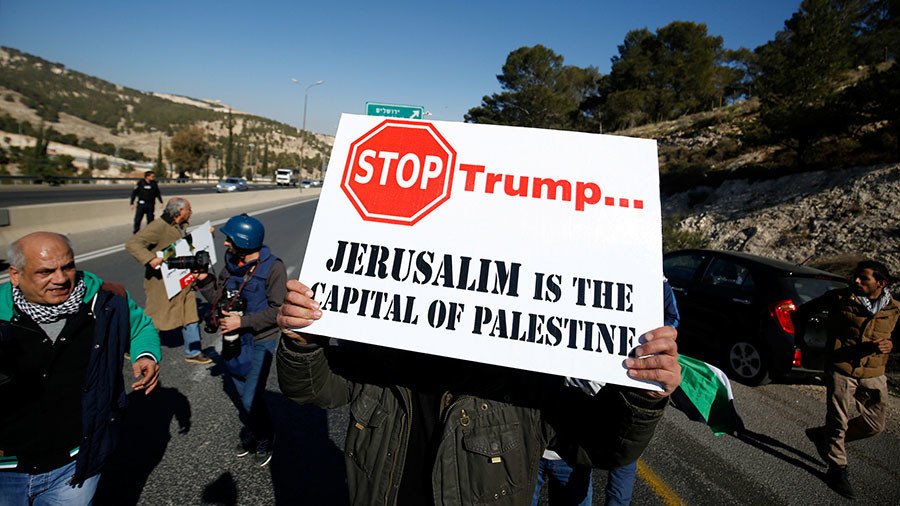
Donald Trump has informed Palestinian President Mahmoud Abbas of his intention to move the US embassy in Israel to Jerusalem, a spokesperson for Abbas said. The Palestinian president told Trump the move would have "dangerous consequences."
"President Mahmoud Abbas received a telephone call from U.S. President Donald Trump in which he notified the President (Abbas) of his intention to move the American embassy from Tel Aviv to Jerusalem," spokesman Nabil Abu Rdainah said in a statement, which did not specify when the move could happen.
"President Abbas warned of the dangerous consequences such a decision would have to the peace process and to the peace, security and stability of the region and of the world," Abu Rdainah said.
Rdainah added that Abbas immediately contacted the "presidents of Russia and France, the Pope and King Abdullah of Jordan," telling them that "such a move was rejected and urging them to intervene to prevent it from happening."
The White House confirmed that Trump spoke to a number of Middle East leaders on Tuesday, ahead of his expected announcement about the US embassy. Spokesperson Sarah Sanders said the US president had spoken to or planned to speak to Israeli Prime Minister Benjamin Netanyahu and Jordan's King Abdullah.
It comes after reports emerged on Friday that Trump would be recognizing Jerusalem as the capital of Israel this week, with AP and Reuters citing unnamed sources within the US administration. That report sparked a wave of reactions across the Muslim world.
One of those reactions was from Turkish President Recep Tayyip Erdogan, who warned earlier on Tuesday that US recognition of Jerusalem as Israel's capital would be a "red line" for Muslims. He also said the step would prompt Ankara to cut diplomatic ties with Israel.
On Monday, Turkish Deputy Prime Minister Bekir Bozdag said during a televised conference that US recognition of Jerusalem as Israel's capital would be a "major catastrophe."
"If the [current] status of Jerusalem is changed and another step is taken... that would be a major catastrophe," Bozdag said. "It would completely destroy the fragile peace process in the region, and lead to new conflicts, new disputes and new unrest."
Following the initial report that Trump might acknowledge Jerusalem as the capital of the Jewish State, the Palestinian Authority and Arab League warned against the move, saying it would increase instability and put an end to the peace process. Hamas has also threatened more violence in Jerusalem if Washington recognized the city as the capital of Israel.
Jordan also began moving to convene an emergency meeting of the Arab League and the Organisation of Islamic Cooperation (OIC) if Washington went ahead with the move. The Palestinian Authority's foreign minister, Riyad al-Maliki also asked the heads of the Arab League and the OIC to host emergency meetings.
Despite the reports that Trump was planning on formally recognizing Jerusalem as Israel's capital, it was believed that he would once again delay his campaign promise to move the US embassy from Tel Aviv to Jerusalem.
Israel has been actively urging the US to relocate its diplomatic mission, with Prime Minister Benjamin Netanyahu saying in May that such a move would contribute to the Israeli-Palestinian peace process by "shattering the Palestinian fantasy that Jerusalem is not the capital of Israel." The Palestinians have been adamantly opposed to that notion from the beginning, with Palestine's UN envoy stating in November 2016 that Palestinians would make life "miserable" for the US if it transferred its embassy to Jerusalem.
German Foreign Minister Sigmar Gabriel also warned on Monday that any move by Washington to recognize Jerusalem as the Israeli capital could deepen the Middle East conflict. "Recognizing Jerusalem as the capital of Israel does not calm a conflict, rather it fuels it even more," he said, as quoted by AP. He added that such a move "would be a very dangerous development."
